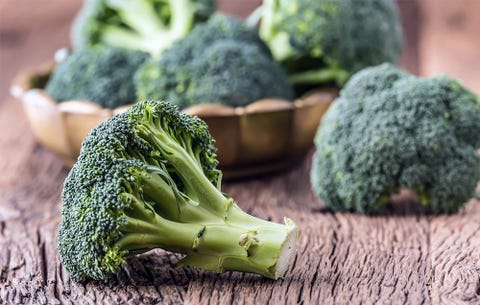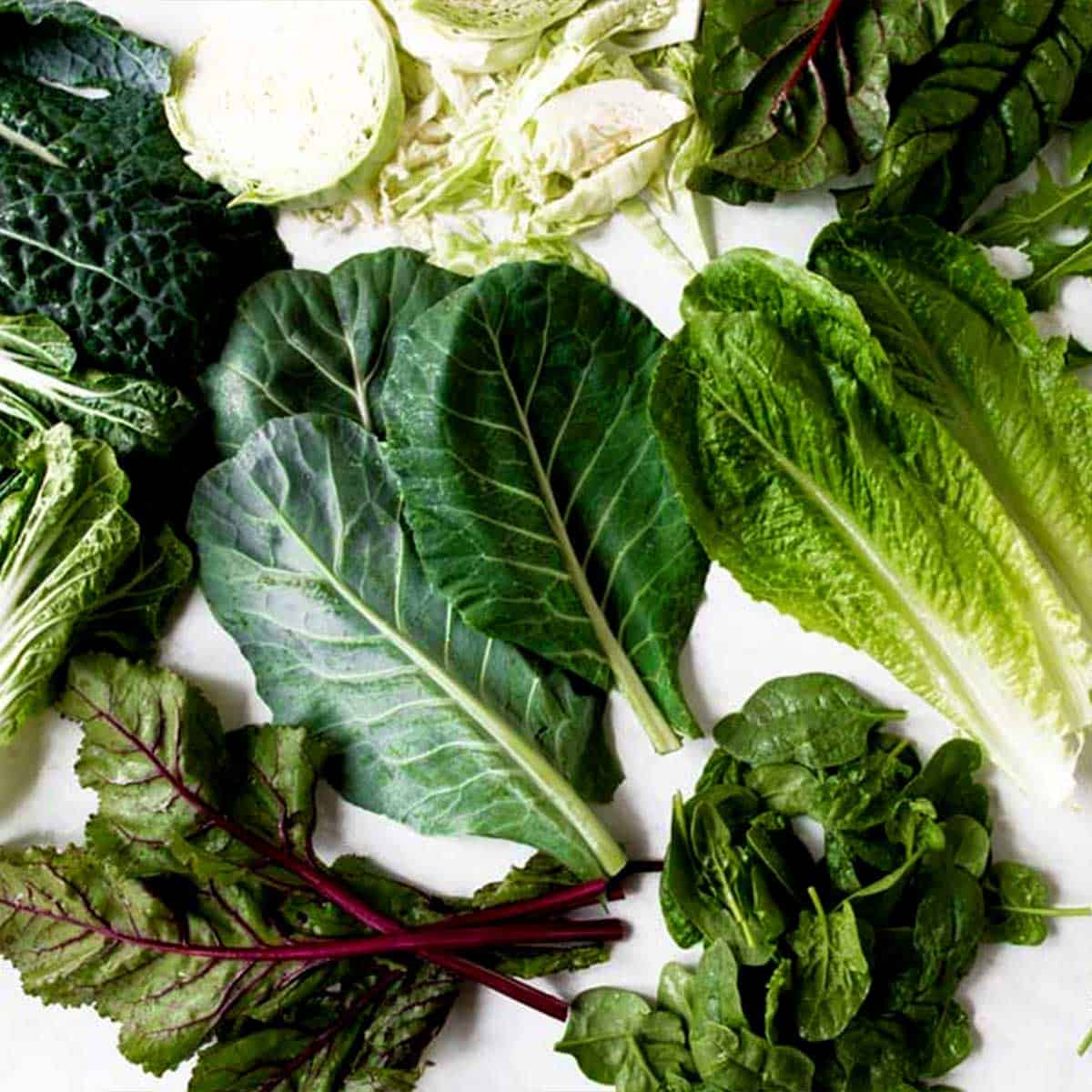Leafy vegetables are good sources of fiber, which helps you stay full and satisfied.
This is important if you want to lose weight because it reduces your appetite.
Fiber also makes you feel full longer than other foods, so you’ll eat less and lose weight.
If you’re trying to lose weight, make sure that your plate has at least one-quarter of its contents made up of leafy green vegetables.
Many leafy greens are low in calories and high in fiber, which makes them an excellent way to fill up on nutrients without filling up on calories.
Here are the top 10 leafy vegetables with the highest fiber content:
1. Kale – 3 grams of fiber per cup (cooked)
2. Spinach – 5 grams of fiber per cup (cooked)
3. Swiss chard – 4 grams of fiber per cup (cooked)
4. Collard greens – 5 grams of fiber per cup (cooked)
5. Beet greens – 5 grams of fiber per cup (cooked)
6. Romaine lettuce – 1 gram of fiber per cup (raw)

High-Fiber Foods
High-fiber foods are a great way to get more fiber into your diet, as well as other nutrients like vitamins and minerals.
Fiber is a type of carbohydrate that has been shown to promote healthy digestion and regularity. Foods high in fiber include fruits, vegetables, beans, whole grains and nuts.
Foods High in Fiber
Leafy vegetables are one of the best sources of fiber. Some leafy vegetables high in fiber include spinach, kale, collard greens and Swiss chard. Other vegetables high in fiber include carrots, broccoli and sweet potatoes. Fruit is another good source of fiber because it contains both soluble and insoluble fiber
Why Are Foods High In Fiber Like Leafy Vegetables & Fruits Recommended For Constipation?
Most Americans get less than half the recommended amount of fiber each day. While there is no recommended daily intake (RDI) for fiber per se, most experts agree that a minimum daily intake of 25 grams is necessary for good health. Most Americans only consume about 15 grams per day on average!
Foods high in fiber, like leafy vegetables and fruits, are recommended for constipation because they help to create a bulky stool that is easier to pass. Fiber acts as an insoluble bulking agent in the gut, which means that it adds bulk to your stool but does not dissolve in water or break down into smaller molecules.
Diets high in fiber may also help you lose weight if you’re overweight or obese by helping you feel fuller for longer. And some studies show that people who eat more fiber have lower rates of cardiovascular disease and diabetes.
Fiber is found in plant foods such as fruits, vegetables, grains and legumes (beans). Although it’s difficult to pinpoint exactly how much fiber a food contains, most people consume half of the amount they need daily from whole grains alone.
Fruits and vegetables are good sources of fiber because they contain both soluble and insoluble fibers. Soluble fibers are found mainly in beans and other legumes; these types of fibers swell up when mixed with liquid, forming a gel-like substance. Insoluble fibers don’t dissolve easily; they’re found mainly in wheat bran, corn bran and rice bran — all components of whole grains.

Leafy vegetables are the best source of fiber.
Fiber is a food component that helps to maintain a healthy digestive system. Fiber acts as a bulking agent in the intestine and increases stool bulk. The health benefits of eating foods high in fiber are numerous, including improved bowel function, weight management, heart health and cholesterol levels.
The recommended daily intake for fiber for most adults is 25 to 38 grams per day for women and 38 to 50 grams per day for men.
The best way to get enough fiber is to eat a variety of different foods that contain it — fruits, vegetables, whole grains and legumes — not just one type of food or single serving of bread or cereal. There’s no need to take supplements or special products unless your doctor recommends them for another reason altogether (such as for constipation).
Leafy vegetables are very healthy and provide a lot of nutrition. Leafy vegetables are the best source of fiber, which helps in digestion and weight loss. Fiber is also helpful for maintaining a healthy heart and keeping cholesterol levels in check.
The recommended daily intake of fiber is 25 grams per day for women and 38 grams per day for men. Here is a list of leafy vegetables that are high in fiber:
Arugula (1 cup) – 6 grams
Collard greens (1 cup) – 5 grams
Spinach (1 cup) – 5 grams
Romaine lettuce (1 cup) – 2 grams
Leafy vegetables are among the most nutritious foods you can eat. They’re rich in vitamins, minerals and phytonutrients.
Leafy greens are also low in calories, making them an ideal choice for weight loss. Their high fiber content keeps you fuller for longer and helps prevent blood sugar spikes that can lead to cravings and overeating.
Here are some of the best leafy greens:
Kale: Kale is one of the most nutrient-dense foods on Earth. It contains more vitamin C than an orange, more calcium than milk and even more iron than spinach!
Spinach: Spinach is another leafy green powerhouse packed with vitamins A, C, K and folate. It’s also rich in antioxidants like lutein and zeaxanthin, which protect your eyes from age-related macular degeneration (AMD).
Collard greens: Collard greens are loaded with fiber, folate and vitamins A, C and K. They’re also a good source of calcium and iron — two nutrients that many Americans don’t get enough of on a daily basis.
Are leafy vegetables high in fiber?
Leafy vegetables are high in fiber, which means they can help prevent constipation. In fact, the fiber found in leafy vegetables can help you lose weight and feel full longer.
Why are foods high in fiber like leafy vegetables & fruits recommended for constipation?
Fiber helps prevent constipation because it absorbs water and expands when it comes into contact with water. This action helps loosen stool, making it easier to pass, explains the National Institutes of Health (NIH). The NIH also notes that laxatives usually contain soluble fiber because it’s easier for your body to absorb. Fiber supplements may also be recommended by your doctor if you have trouble getting enough from food alone. If you have diabetes or heart disease, talk to your doctor before taking a supplement.
Leafy vegetables are high in fiber, which is the indigestible part of plant foods. Fiber is important because it helps keep your digestive system healthy and regular.
Why are foods high in fiber like leafy vegetables & fruits recommended for constipation?
Fiber adds bulk to your stool and makes it softer and easier to pass. It can also help prevent hemorrhoids.
A diet high in fiber can help with weight loss by making you feel full on fewer calories.

What types of leafy vegetables are high in fiber?
Leafy vegetables are high in fiber. Fiber helps you feel full, so you eat less and lose weight. It also lowers your cholesterol, which can help prevent heart disease.
Fiber is found in foods that come from plants, like legumes (beans), fruits, vegetables and whole grains. Some foods have more than others. For example, broccoli has 2 grams of fiber per cup (91 grams) while a baked potato has only 1 gram per medium potato (4 ounces).
Fiber comes in two forms: soluble and insoluble. Soluble fiber dissolves in water and turns into gel during digestion; insoluble fiber doesn’t dissolve in water but adds bulk to your stool so it’s easier to pass through the intestines without being completely broken down by digestive enzymes first. Both types of fiber are good for you because they can help lower cholesterol levels, reduce your risk for type 2 diabetes and promote regular bowel movements.
Why Are Foods High In Fiber Like Leafy Vegetables & Fruits Recommended For Constipation?
Leafy vegetables are high in fiber, which helps to prevent constipation. Leafy vegetables are also rich in vitamins and minerals.
You may have heard that leafy vegetables are good for your health. They are packed with nutrients and can help you lose weight and lower your cholesterol levels.

Leafy vegetables are high in fiber, which helps to prevent constipation. Leafy vegetables are also rich in vitamins and minerals.
There is no doubt that leafy vegetables are a great food choice for weight loss, but what about fiber? How much fiber is there in a serving of leafy veggies?
Leafy vegetables are a great source of fiber. They are also rich in vitamins, minerals and antioxidants.
The following leafy vegetables are high in fiber:
Spinach — 1 cup has 3 grams of fiber
Collard greens — 1 cup has 5 grams of fiber
Swiss chard — 1 cup has 4 grams of fiber
Romaine lettuce — 1 cup has 2 grams of fiber
Lettuce (red or green) — 1 cup has 2 grams of fiber